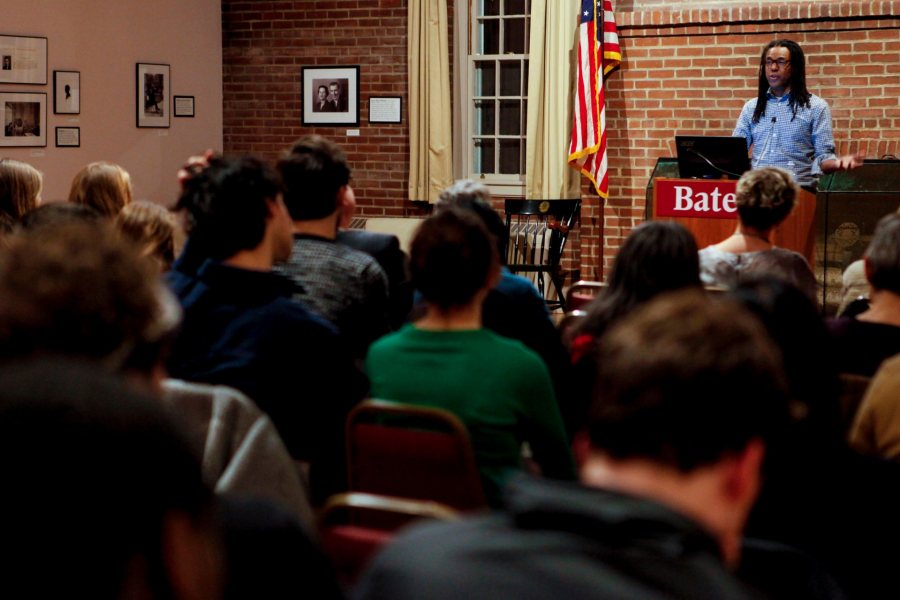Bates Learning Associates Program
Application Deadlines:
For 2024-2025, Learning Associates applications are due by 11:59 PM on:
15 September
15 November
15 March
15 May
Note: There are no extensions to the deadlines. Late applications will be reviewed at the next application deadline. Decisions are usually made by the end of each application month but cannot be guaranteed.
The Bates Learning Associates Program is an exciting opportunity that enables faculty in the humanities and social sciences to bring to Bates scholars, experts, and practitioners who provide a real-world context for ideas and learning. These experts offer additional stimulus and provide new dimensions in learning that are especially valuable for students proceeding toward their senior thesis or a capstone experience. A generous endowment from The Christian A. Johnson Endeavor Foundation funds the learning associates program.
What are Bates Learning Associates?
Bates Learning Associates are graduate scholars, practitioners or other experts who work with students at any point during their four years at Bates to develop the skills, knowledge and growth important during their senior thesis experience. When thinking about inviting this type of colleague into a department or program, it should be clear that this associate is not construed as a faculty member or co-teacher, per se. They may not grade work of students, they are not contracted through Human Resources (which entails background checks and letters of recommendation), they do not take primary responsibility for the administration, assessment, or execution of the course or their role in it, and their reimbursement is not based on faculty salary ranges. They are truly associates, whose expertise and advice enhance the faculty member’s teaching.
Who may apply for these grants?
Funds are available to faculty in the humanities and social sciences through submission of proposals by individual faculty or department chairs. Faculty may submit proposals for learning associates for interdisciplinary programs if the proposed learning associates and the purposes they serve are grounded in the humanities or social sciences. The program welcomes applications from individual faculty members, clusters of faculty, interdisciplinary teams, multiple departments, programs, and other groups.
Students are encouraged to tell the faculty of their interest in particular scholars or practitioners.
What should a proposal include?
The proposal should include a specific plan for interaction with students, impact on student learning, and presentations or performances. The proposal should also include documents such as a C.V. and/or web sites about the learning associate. The selection committee funds proposals that bring the highest value to student learning by considering the number and quality of classes or sessions of direct contact with students, master classes with thesis or prospective thesis students, degree of collaboration with other faculty, additional public presentations or performances, and stature of the prospective learning associate.
The proposal should also include a comprehensive budget and indication of whether other funds are being sought and those funding sources.
What are the size of awards and what does the grant cover?
Awards range in size from $300 – $5,000. Higher priority is given to proposals from applicants who have not been awarded Learning Associates in the past 12 months.
Grants may cover the LA’s honorarium*, travel to and from Bates, lodging while here, meals while here, and sometimes other miscellaneous expenses.
*If the guest is not a U.S. National, please contact Jason Scheideman to discuss VISA status as this has implications with paying the honorarium.
How does length of stay at Bates, contact hours with students, and expertise of the Learning Associate (LA) effect the award granted?
The honorarium award is guided by the actual number of hours that a particular LA is actively engaged with the class in person or via Zoom, advising students in small groups in person or via Zoom, or working with individual thesis writers in person or via Zoom.
The proposal should include a definite plan for how the LA will interact with students in and out of the classroom in person or via Zoom or present college-wide lectures or workshops in person or via Zoom. It is helpful if the Probable Dates of Visit includes separate contact time. In an effort to become a resource for as many faculty as possible each academic year, the selection committee may adjust the proposal budget during the award process.
What is an example of an application that has been funded?
The most common awards are for guest artists, writers, policy makers, scholars, or technicians who add new dimensions to student learning. The learning associates program is unable to fund individuals to teach courses at Bates. If you would like to bring in a lecturer to teach a course, please contact the Dean of the Faculty’s Office.
Is there a final report required?
Yes. A brief, final report from the host faculty member is required within two weeks of the LA’s visit to campus. The report should describe the main teaching, mentoring, or performing accomplishments of the LA during their visit. Please send that report in PDF form to akeegan@bates.edu.
Who makes the Learning Associates grant decisions?
The Faculty Scholarship Committee reviews proposals and grants awards. That committee appreciates the need for long-range planning and invites applications for projects well in advance of implementation. The Committee does not award retroactively. Decisions are usually made by the end of each application month, but cannot be guaranteed.
For 2024-2025, the Faculty Scholarship Committee is:
Donald Dearborn, Chair and Director of Faculty Scholarship
Amy Douglass
Jakub Kazecki
Keiko Konoeda
Peter Wong
How do I apply?
Address additional questions to Alison Keegan via e-mail (akeegan@bates.edu).
